The Best 70s Country Songs: Classic Tunes From An Essential Decade
The 1970s have often been regarded as a particularly bright golden age for country music, and with good reason.
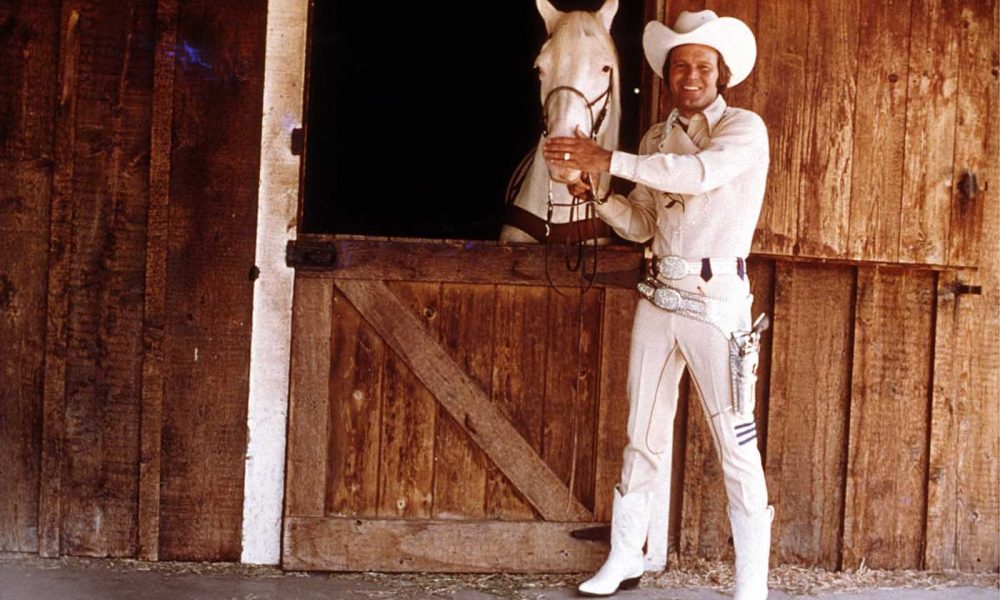
The 1970s have often been regarded as a particularly bright golden age for country music, and with good reason. While the previous decade had seen tremendous evolutions and revolutions alike in rock and soul music, country was still stuck in slightly more traditional ways. But with the dawn of the 70s, the floodgates had finally burst for country music, in Nashville and beyond: “We need a change,” as Waylon once opined. The corn syrup slick of mainstream “countrypolitan” still often dominated, but new countercultures emerged that pushed country music into uncharted territory, boldly settling on new frontiers of genre and style.
Order the compilation NOW That’s What I Call Country Classics ’70s now.
The so-called “outlaw” movement started wearing its hair a little longer, while rebels like Willie Nelson and Jerry Jeff Walker fled the heart of the country music industry to seek refuge in the untamed pastures of Texas, where songwriters like Guy Clark and Townes Van Zandt existed like hermit poets. Women like Emmylou Harris, Loretta Lynn, and Dolly Parton dismantled the outmoded image of the “girl singer” whose expression is largely dictated by men, proving themselves as songwriters. Nashville still unfortunately has much further to go when it comes to platforming marginalized groups, but the 1970s also saw Black and Latino artists like Charley Pride and Johnny Rodriguez knocking down doors once closed to performers who looked like them. It was a highly transitional moment for country music on almost every level, as the genre opened itself up to new places and faces.
Here are just a few of the best country songs from the 70s.
Don Williams – It Must Be Love
Don Williams’ voice was never the slickest, but he sang of love with an almost childlike sincerity that suited his threadbare delivery. This catchy 70s country earworm practically bottles the butterflies in your stomach.
Lynn Anderson – Rose Garden
With Anderson’s ever-so-husky voice and an orchestral arrangement that borders up against the Wall of Sound, “Rose Garden” bridges Nashville’s countrypolitan schmaltz with the sonic atmosphere and sassy tongue of Phil Spector-produced girl groups.
Jerry Reed – When You’re Hot You’re Hot, When You’re Not You’re Not
An innovator of swampy Southern rock, Jerry Reed was funny and funky in equal measure. This Cajun-inflected groover almost imagines an alternate universe where Funkadelic emerged from the Louisiana swamp.
Eddie Rabbitt – Every Which Way But Loose
The theme to Clint Eastwood’s interspecies comedy of the same name, this Eddie Rabbitt song shows how loose the definition of country music often is: save for the steel guitar, the sweeping strings and crescendoing chorus evoke Elton John or Harry Nillson more than Nashville.
Linda Ronstadt – Blue Bayou
Linda Ronstadt has often transcended country music, but there’s denying that her sound is country to the bone. As her sound evolved throughout the 1970s, she embraced new pastures, and there’s a swaying breeze to “Blue Bayou” that’s ever so funky: call it yacht rock, but pontoon rock might be more accurate.
Crystal Gayle – Don’t It Make My Brown Eyes Blue
Country music and jazz have always been closer than most want to admit, from the big band arrangements of Bob Wills to the smooth traditionals of Willie Nelson’s Stardust. Gayle’s sultry vocals border on cabaret music, conjuring a dimly-lit after hours club in your mind’s eye.
Moe Bandy – I Just Started Hatin’ Cheatin’ Songs Today
Miserablism is a cornerstone of country music: before there was emo, there were epics of self-pity and self-loathing like “I Just Started Hatin’ Cheatin’ Songs Today.” Even the catharsis one hopes to find at the bottom of the glass is interrupted by the pain of a song coming on the jukebox that’s all too relatable.
Kris Kristofferson – Help Me Make It Through The Night
Though he might have played one in Hollywood, Kris Kristofferson never pretended to be an outlaw. Rather than a hard-edged cowboy hero, he often demonstrated a deep sensitivity and almost naked vulnerability on songs like “Help Me Make It Through The Night,” which complemented his quiet sex appeal as a leading man.
Johnny Rodriguez – Ridin’ My Thumb to Mexico
For as long as there have been country songs, there have been country songs about hitch-hiking, a quintessentially lonesome experience like riding the ranges of yore. On his breakout hit, Johnny Rodriguez captures a bittersweet feeling: the hopefulness of what lies on the road ahead, and the heartbreak in the rearview mirror.
Tanya Tucker – Delta Dawn
Tanya Tucker was only thirteen when she recorded “Delta Dawn,” far too young to know of the things that she sang. There was a grit to her voice beyond her years, a bluesy pain that suggested her childhood had been far from idyllic, that leaves you with a quietly eerie feeling.
Conway Twitty – Hello Darlin’
On this yearning ballad, Conway Twitty is truly a crooner, in the classic Bing Crosby or Frank Sinatra sense of the word: a rapturous balladeer who draws you so close that it almost feels uncomfortable to listen to with anyone else around.
Waylon & Willie – Mammas Don’t Let Your Babies Grow Up to be Cowboys
These two twin flames of outlaw country shared many a duet, but this remains their most quintessential, the embodiment of the 1970s’ revisionist tendencies: the cowboy’s life is not one to be romanticized, but one to be warned away from.
Charley Pride – Is Anyone Goin’ To San Antone
A pioneering Black country star in an industry that still has far too few of them, Charley Pride could be a tender lover, but he could be quietly funny too. The hobo searching for a way to San Antonio has all the reason in the world to cry, but Pride injects his dilemmas with a little good humor.
Rusty Wier – Don’t It Make You Wanna Dance
One of the most unheralded figures of the “redneck rock” wave of the 1970s, Austin cult favorite Rusty Wier existed at the crossroads of genres: it’s a little bit country, a little bit rock and roll, but it makes you want to dance either way.
Freddy Fender – Wasted Days and Wasted Nights
Freddy Fender was one of the genre’s first major bilingual stars, crossing back and forth between Texas country and Tejano music. He blended genres just as effortlessly as languages, and “Wasted Days and Wasted Nights” is suitable for both rockabilly sock hop and dive bar jukebox.
Billy Joe Shaver – Old Five & Dimers Like Me
Where many performers have played at being outlaws, Billy Joe Shaver lived the gimmick like few others, stirring up trouble into his old age. This number might have been made famous by Waylon Jennings, but it was made for Billy Joe’s leathery voice, worn and weathered like the central Texas soil beneath his feet.
Bobby Bare – Dropkick Me, Jesus
Bobby Bare introduced himself as a straight-faced singer, but as the unruly 60s turned over into the shaggy 70s, he reinvented himself as something of an armchair humorist. “Dropkick Me, Jesus” is sincere in its faith, but tongue-in-cheek enough to appeal to non-believers.
Emmylou Harris – Two More Bottles of Wine
Though she would grow into her own as a songwriter with age, Emmylou was just as skilled at being the frontwoman of a rowdy party band. This Delbert McClinton-penned drinking song captures the hazy euphoria of shutting the bar down while sipping on some concoction whose contents you’re not quite sure of.
Dottie West – A Lesson in Leavin’
Jo Dee Messina’s saucy take on this kiss-off anthem might have been the bigger hit, but Dottie West’s original is the funkier version, with a dubby drum beat and groovy bassline that’s as suited to the discotheque as the honky-tonk.
Gary Stewart – She’s Actin’ Single (I’m Drinkin’ Doubles)
On this boozy wailer, Gary Stewart wears his heart on his sleeve, with a few liquor stains to boot. The hook demands to be belted, but Stewart’s vibrato voice quivers in pain, as if it might shatter into a thousand pieces at any moment.
Tom T. Hall – I Like Beer
While he was more than capable of serious sentiments, few could write a self-effacing novelty song like Tom T. Hall, who distills one of the essential themes of country music to its purest essence in a rousing waltz time ode to the common man’s alcohol of choice.
Jimmy Buffett – A Pirate Looks At Forty
Beneath the carefree living that defined the Jimmy Buffett lifestyle brand, there was a deep existential sadness: the feeling that life might be passing you by, or that a strong wind might come through tomorrow and blow it all away. Though “A Pirate Looks At Forty” lends itself to bar singalongs like the best of Buffett’s songwriting, it lends itself to loneliness, as you sit on the dock and watch your dreams drift out of view.
John Prine – Hello In There
Few songwriters of any genre have had such a keen eye for the precise details of the interior lives of other people than John Prine. Though Prine was only in his mid-20s when he initially recorded this tender ballad about how love ebbs and flows across time, it speaks to a wisdom far behind his years, deftly demonstrating the unique capacity of the story song form to empathize with perspectives outside of our own.
Jerry Jeff Walker – London Homesick Blues
Immortalized as the theme song to public television’s long-running Austin City Limits, this Gary P. Nunn-penned yarn – first recorded by Jerry Jeff Walker and the Lost Gonzo Band on their iconic live album Viva Terlingua – captures with wry humor the sense of alienation that native Texans often feel upon leaving their native climate. The weather is too cold, the lovers are too frigid, and you can’t help but put your whole boot in your mouth whenever you speak: the only remedy is the warmth of good country music. Repeat the chorus until the cows come home.
George Jones – The Grand Tour
While George Jones had a particular talent for ripping his listener’s hearts to shreds, “The Grand Tour” is one of his most despairing songs, as a broken man guides us through the ghosts that haunt him. He’s preserved his heartbreak like a museum, every object imbued with the painful memories of his old life, from an empty chair to a cradle left abandoned.
Merle Haggard & The Strangers – Irma Jackson
To some, Merle Haggard was an all-American patriot. But to just as many, he was a radical outlaw who wasn’t afraid to speak out about unpopular truths. “Irma Jackson” remains one of the most politically defiant songs in the history of country music, which spoke plainly and frankly about the honest love between a white man and a Black woman, only a few short years after the landmark Virginia vs. Loving case that struck down state bans on interracial marriage.
Charlie Rich – Rollin’ With The Flow
Few in Nashville have ever been slicker than Charlie Rich, and “Rollin’ with the Flow” is one of his most soulful, as glistening countrypolitan strings accompany his tale of carefree resilience and never growing up.
John Denver – Take Me Home, Country Roads
John Denver might have been an outsider to the Nashville establishment, but his anthemic signature tune has been undeniably canonized, not just as a country classic, but one of those inimitable road trip sing-a-longs every American seems to innately know as part of our national inheritance.
Michael Martin Murphey – Wildfire
Though he might have become somewhat overshadowed by emigres like Willie and Jerry Jeff Walker, Murphey was an indisputable pioneer of Austin’s groovy little country scene. “Wildfire” has an epic sweep, a torch song for a lost horse that’s as cinematic as it is cosmic.
Waylon Jennings – Are You Sure Hank Done It This Way
Maybe more than any other song, Waylon’s State of the Union address defined the ethos of outlaw country, an unmistakable and unapologetic thumb in the eye to the aesthetic conformity of the Nashville machine, bucking Music Row’s corporate-mandated tradition of quality for something more raw and real.
Johnny Paycheck – Take This Job and Shove It
This David Allan Coe-penned number isn’t exactly a treatise on labor rights – it’s more about a man who loses his will to work because his heart is broken than an expression of worker solidarity – it’s a stunning example of how country music has so often provided a cathartic outlet for the working class.
Hank Williams, Jr. – Family Tradition
While Hank Jr. might be better known for his rowdy friends and frequently boorish behavior, there’s something deeply haunting about his songwriting, even a classic party song like “Family Tradition.” Even in moments of outright revelry, Hank can’t help but feel the weight of his name bearing down on his shoulders – not to mention the angel of death breathing down his neck.
Townes Van Zandt – Pancho & Lefty
This tragic tale of a world that’s outgrown its old cowboys isn’t just one of the most iconic story songs in all of country music: it’s a genuinely masterful work of literature, up there with Don Quixote and Lonesome Dove.
Oak Ridge Boys – Leavin’ Louisiana in the Broad Daylight
The long-running Oak Ridge Boys shifted from a down-home gospel group to a radio country act in the late 1970s, but they retained the pristine choir-boy harmonies that made their sound so recognizable. This signature number is somewhere between a bluegrass family singalong, the Beach Boys, and the Mormon Tabernacle Choir.
The Charlie Daniels Band – The Devil Went Down to Georgia
Charlie Daniels’ mythic yarn is practically prog rock, an absolute shredder that’s honestly closer to the epic fantasies of Iron Maiden than anything from Music Row: No wonder it was later included in Guitar Hero III.
Glen Campbell – Rhinestone Cowboy
Glen Campbell might have been singing from the perspective of a world-weary rodeo rider, but the carny existence he tells us of is really a metaphor for the life of the touring musician: you can play the glittering superstar to your audience while still just barely scrapping by.
Dolly Parton – Jolene
While Dolly Parton’s public persona has always been effervescent, “Jolene” is haunting, as if Dolly’s pleading for her life as much as her love. There’s something ever so taboo about this 70s country classic too; it’s hard not to get the feeling that Dolly is more taken with the incomparable Jolene than her nameless beau.
Loretta Lynn – Coal Miner’s Daughter
Loretta Lynn’s bluegrass-inflected biography of life in Butcher Hollow, Kentucky isn’t just a perfect demonstration of pop narrative as a personal memoir: it was also an iconically watershed moment for women in country music. It shattered the regressive stereotype of the “girl singer” to re-introduce Loretta as a fully-fledged singer-songwriter. But “Coal Miner’s Daughter” is defined by Loretta’s native accent as much as any single lyric: there’s an unmistakable sense of place conjured not just by the Appalachian twang of the banjo lead, but the way Loretta says a word like “washboard.”
Guy Clark – Desperados Waiting For a Train
Guy Clark is a songwriter where it’s painful to pick just one, but the fact that “Desperados Waiting For A Train” has been covered more times than you can count makes it a strong contender for his magnum opus. Like any great Western film, this achingly tender story is about a way of life ending as much as it is about a man growing old: the gray-haired elder that Clark writes of might as well have been Sam the Lion from The Last Picture Show, a tough frontier hero reduced to gray hair and a beer gut.
Doug Sahm – It’s Gonna Be Easy
Tex-Mex raconteur Doug Sahm bottled the psychedelic energy of the Summer of Love and brought it back down South. As a solo artist and with bands like The Sir Douglas Quintet and The Texas Tornadoes, Sahm effortlessly blended the many sounds that meet in the Texas borderlands into a trippy gumbo: the nostalgic warmth of Mexican norteño, the raucous twang of honky-tonk swing, and a little bit of freaky rockabilly.
Kenny Rogers – The Gambler
This signature song from the suave country crooner is one of those songs that’s iconic in part because it’s just so darn true: you do have to know when to hold ‘em and when to fold ‘em.
Ronnie Milsap – Smoky Mountain Rain
Ronnie Milsap was always as much blue-eyed soul as country-western, and in another era, this maximally melodramatic ballad could probably have been sold as R&B: the song’s lovesick traveler is crying in the rain like he’s a member of Boyz II Men or New Edition.
Joe Ely – Honky Tonk Masquerade
Lubbock, TX original Joe Ely might have been regarded by some as the second coming of Buddy Holly, but he could honky-tonk with the best of them. On this slow Western swing, Ely howls at the moon about his broken heart – the expressive pedal steel playing of Lloyd Maines sounds almost like the sound of weeping.
Terry Allen – Amarillo Highway (for Dave Hickey)
Terry Allen is the kind of Renaissance man that could only come from a place like West Texas, who somehow managed to effortlessly thread the highbrow art-world and the distinctively lowbrow world of Texas dance halls and dive bars. This downright barnburner is about as Texan a song as has ever been recorded: hot like the asphalt on the endless highway, and sweaty like a bottle of Lone Star in your hand.
David Allan Coe – You Never Even Called Me By My Name
Compared to other genres, country music has a unique ability for an almost postmodern sense of referentiality: on this meta-classic, David Allan Coe doesn’t just mimic his fellow country music stars, but lampoons the tropes of country-western songwriting. Though Coe only shouts out Steve Goodman, the song was co-written with John Prine, who asked to have his name left off the song because he was so worried it would offend establishment sensibilities.

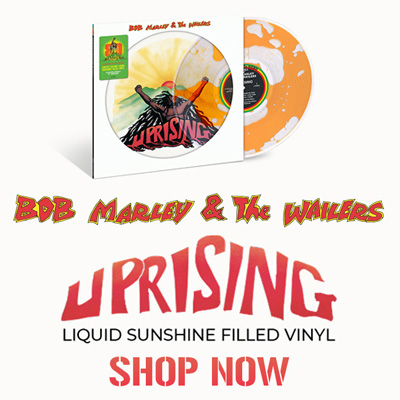




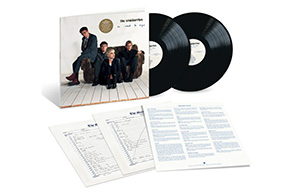

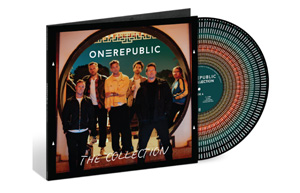
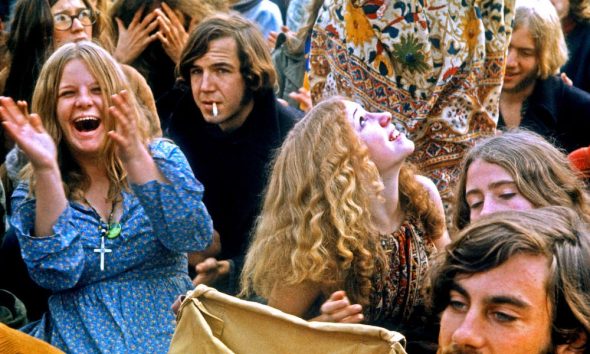
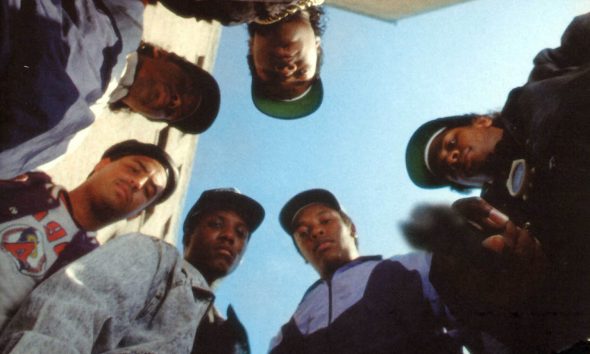

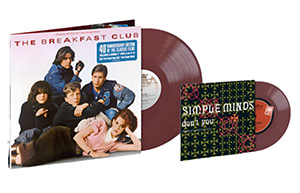
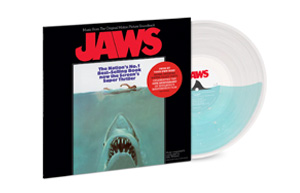
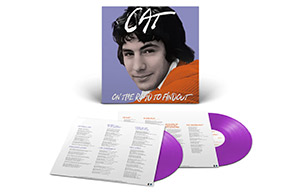
richard klopp
March 8, 2024 at 1:53 am
wares eddy Arnold.. he made country popular.
Debbie
March 8, 2024 at 7:00 am
Dan Seals was forgotten I loved Dan a d his music so much such as Bop!